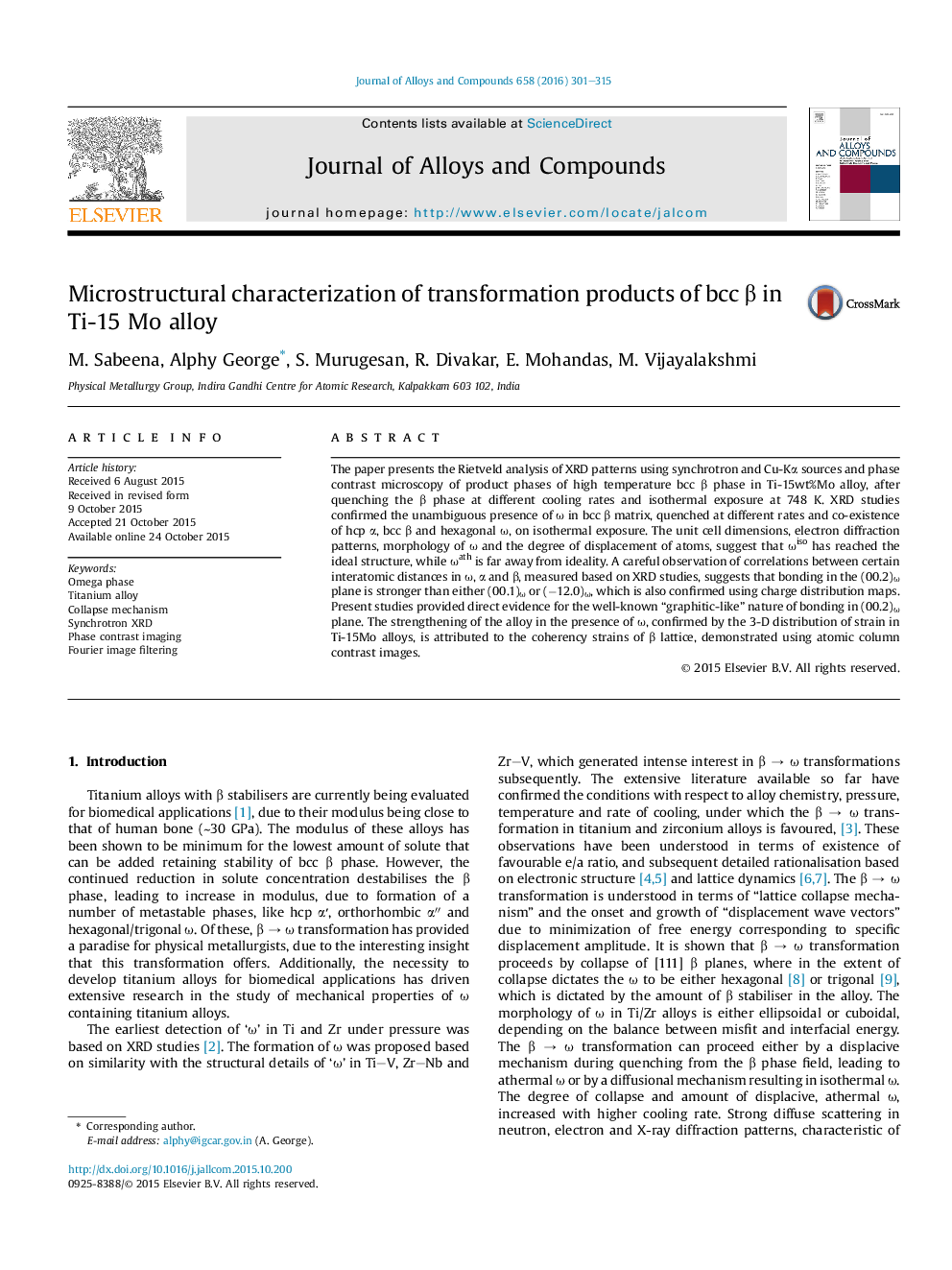| Article ID | Journal | Published Year | Pages | File Type |
|---|---|---|---|---|
| 1607427 | Journal of Alloys and Compounds | 2016 | 15 Pages |
Abstract
The paper presents the Rietveld analysis of XRD patterns using synchrotron and Cu-Kα sources and phase contrast microscopy of product phases of high temperature bcc β phase in Ti-15wt%Mo alloy, after quenching the β phase at different cooling rates and isothermal exposure at 748 K. XRD studies confirmed the unambiguous presence of Ï in bcc β matrix, quenched at different rates and co-existence of hcp α, bcc β and hexagonal Ï, on isothermal exposure. The unit cell dimensions, electron diffraction patterns, morphology of Ï and the degree of displacement of atoms, suggest that Ïiso has reached the ideal structure, while Ïath is far away from ideality. A careful observation of correlations between certain interatomic distances in Ï, α and β, measured based on XRD studies, suggests that bonding in the (00.2)Ï plane is stronger than either (00.1)Ï or (â12.0)Ï, which is also confirmed using charge distribution maps. Present studies provided direct evidence for the well-known “graphitic-like” nature of bonding in (00.2)Ï plane. The strengthening of the alloy in the presence of Ï, confirmed by the 3-D distribution of strain in Ti-15Mo alloys, is attributed to the coherency strains of β lattice, demonstrated using atomic column contrast images.
Related Topics
Physical Sciences and Engineering
Materials Science
Metals and Alloys
Authors
M. Sabeena, Alphy George, S. Murugesan, R. Divakar, E. Mohandas, M. Vijayalakshmi,
